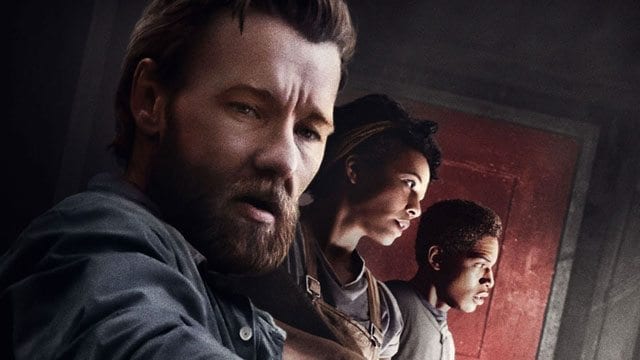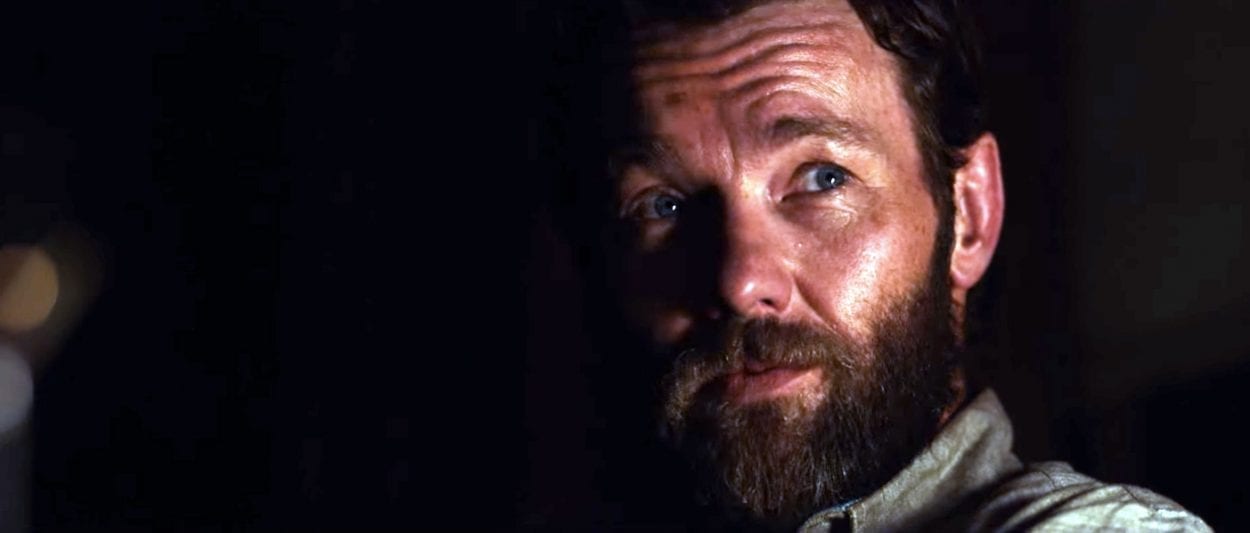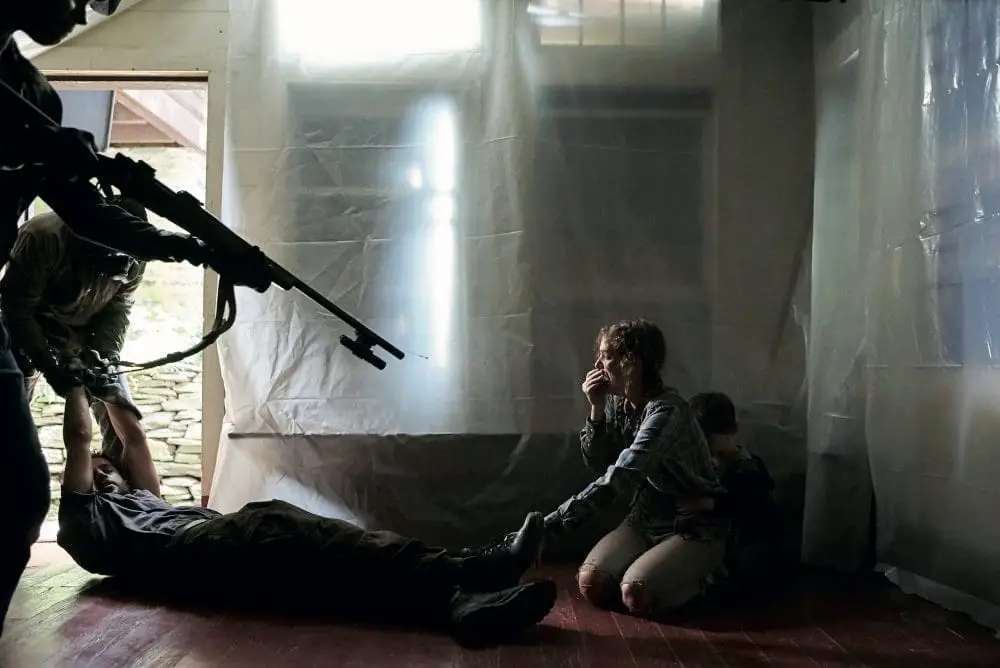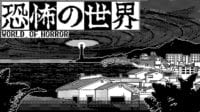In this time of paranoia and social distancing, I thought there was no better occasion to go back and rewatch the 2017 American horror film It Comes at Night. Written and directed by Trey Edward Shults, the story is centered around a family holed up in a house in the woods whilst the outside world is seemingly being ravaged by some form of infectious disease. Sounds familiar, right?
Well, it should because this is the reality that we all have become far too well acquainted with, in recent times. Governments have called for people to remain sequestered at home and only leave the confines of their dwellings for reasons of the utmost importance. When one does find themselves venturing out, distance and protection are the two things that immediately come to mind.
Distance from strangers and protection from the invisible enemy, the virus hell-bent on wreaking havoc on everything and everyone we know: these are the two main themes that find themselves at the heart of It Comes at Night. What accompanies these two important focal points of the narrative is risk management. Shults reminds us constantly how important it is to asses the risk and consequences of one’s decisions.
These normal everyday people are tasked with the responsibility of making decisions with real-world and very immediate ramifications. The looming red door, the color of danger, the symbolism of all the threats that await them in the outside world. Now more than ever we look at our own front doors a little differently, it is the shield against the threat but also the portal in which we go through to face all that can do us harm.

The everyday people in question here are the family of Paul (Joel Edgerton), Sarah (Sarah Ejogo), and Travis (Kelvin Harrison Jr.), who have just witnessed the death of Sarah’s father who succumbed to the mysterious illness, are now faced with a decision. The choice they have to make is rooted in trust, the trust of the unknown. That unknown is whether they should believe the pleas of a man who broke into their home—pleas for assistance for him and his beleaguered family.
There is that risk management again. They have to weigh up not only the validity of the man’s claims but also whether or not he will try to take the little they have left in the world. They decide after hearing that he is in the possession of some livestock that the prudent thing would be to combine resources instead of trading them. This begins what is a very fragile pact that the two familial groups agree to adhere to.
This is where Shults shows us his real class as a narrative craftsman. Just like the family, as soon as we allow ourselves to trust, Shults begins to sew seeds of doubt in our minds. When Paul sets about bringing Will (Christopher Abbott) to collect his family, they only get 10 miles from the house before being attacked by some armed men. Just like Paul, we are immediately reminded of Will’s claims that he had traveled 80 miles without encountering a single soul.
Now those doubt-filled seeds will begin to promptly grow into paranoia laced vines that will spread rapidly throughout our own psyche and that of the characters. This is where the balancing act of It Comes at Night begins to take place. On one side we see trust and on the other suspicion. It will be this see-sawing of these innate human characteristics that will define not only the narrative but also the burgeoning relationship between the two sets of families.
As the story begins to play out, the two families begin to settle in with one another. They grow close over time and find themselves benefiting from having one another around. The sense of community is strong within the group, but there is always a hint of foreboding, a remnant of unease from the earlier encounter with the men on the way to Will’s family. Paul is constantly prodding and probing Will for any information, any altering of his own narrative. The patriarchal figure is like a shepherd seeking out the wolf amongst his flock.
This is no better exemplified than in the scene where Paul and Will share drinks. Shult’s allows us to settle in just like the two men. Their inebriation is our sense of ease, we feel their closeness but as soon as we relax, Shults jerks us right back into a state of distrust. When the two men converse Will lets slip that he is an only child, a reversal on the story that he and his family had been staying with his brother throughout the difficulties.
Will quickly backtracks, saying it was a slip of the tongue, that he meant his brother-in-law. Now once again our sense of trust has been distorted. At this moment we are seeing the story through not only Paul’s eyes but Paul’s mind. This is a reminder to us as much as Paul that this man that he has allowed into his home is a stranger, that all we know is what we have been told, and how much of that tale is rooted in fact or fiction is still a mystery to us.
Once again the sense of unease and distrust is rife within Paul. It is this moment that reminds us that we can never let our guard down. That, we know, is today’s reality in which we find ourselves on lockdown and that to let the wrong person in can end with fatal results. We too feel this now, a heightened sense of everything, that life has been turned up to the nth degree. It is now more than ever we clutch onto the ones we love.
In this instance, Paul’s grip becomes tighter on his loved ones. In his mind, he is starting to build a wall between his family and Will’s. If Paul’s fear and paranoia are emblematic of the disease then the sense of community was the remission of that said illness. Now with Will’s inconsistency’s the disease has begun to relapse. This time it will spread and metastasis within him, he doesn’t know it yet, but we see it, it is in his eyes. This is a short but incredibly important scene and another display of Joel Edgerton’s skill as an actor.

Speaking of Edgerton, his turn as Paul is just one in a long line of excellent performances from the understated and underrated actor. The way Edgerton emotes fear, suspicion, and unease is so subtle. He is a real person with the burden of dealing with unreal circumstances. Paul is the epitome of the patriarch and what someone in that role feels is expected of them. He would do anything to anyone to protect what is his, who he loves and the little shard of territory that they call home. Edgerton portrays Paul as a quiet man with a burning intensity at his core. He wants to be good and tries so hard to stay good, but he is wracked with an extreme sense of paranoia.
It is this aforementioned paranoia that guides each and every decision that he makes, and as the story progresses, we see how this type of thinking can have deadly consequences. What It Comes at Night really shows us is that when fear and suspicion become firmly planted within one’s self, they can be impossible to uproot. This is the conflict that wages war, not just in Paul but also his wife Sarah. It is clear that they are inherently good people that have been pushed to their wit’s end and have begun to crack.
As soon as the cracks appear, they quickly begin to split wide and form a chasm, revealing the basest of instincts. That instinct is the need to survive. When Paul thinks that Andrew has become infected he comes to the decision that the families should distance themselves from one another. The decision to quarantine Will’s family is when the mask of civility begins to slip. It will eventually fall to the floor entirely when Travis awakens his parents to the sounds of Andrew’s persistent coughing.
This is when It Comes at Night shows us that mental fragility paired with this survival instinct causes irrational thinking and knee jerk reactions. This combination causes impulses that lead to a rapid escalation in events. Paranoia quickly leads to aggression that pours fuel on an already volatile fire that is just waiting to erupt in the worst kind of way. This is what is at the crux of It Comes at Night, one’s ability to control the worst parts of our nature that in turn seek to control us.
It is that struggle between the light and the dark that informs so much of the characters’ choices. At the beginning of the story, they fight to hold on so dearly to the light, but when events take a turn they give in to the darkness. They allow it to envelop them like an army that has been out-fought and out-witted, and they find themselves staring defeat in the face. They are now at the mercy of the infection that has begun to ravage their system, but it is not the virus that is the true disease that is being spread in this movie. It is the paranoia that is the real plague.

Paranoia infects every aspect of not only the characters but also finds a home for itself in every corner of the narrative. Just like Paul, Sarah, and their son Travis, we don’t know who or what to believe. We have to ask ourselves the same questions as they do. Is it worth risking our own safety and everything we hold dear to save another? What way do we mitigate the risk?
Does the form of this mitigation take the shape of creation or of destruction? We see both of these play out. As I previously mentioned, they initially tried to create a new world in the form of their small group, a minute community with the single goal of survival in mind. Then, as that single goal slowly overrides the sense of we then the destruction rears its ugly head. When the relationship between the two families begins to deteriorate, we bear witness to the primal side of Paul and Sarah.
The execution of Will and his family is heartbreaking but also a terrible lesson for us to learn from. When we value survival over everything else then we forget who we are, what we are, and what makes this life worth living. To just exist is not the same as living, one has to embrace life and the ones who we live it with. I think unfortunately for Paul and Sarah they realize this too late. When they see Travis become ill and eventually succumb just like Sarah’s father to this illness, they give up.
They now understand that life without meaning is no life at all, that their reason for living was their love for their son, that he was their life and so with him went their will to live. It is a powerful message that resonates with all of us. Life is nothing without meaning, that united we stand and divided we fall. When we are faced with questions and circumstances that we could have never imagined, we have to stand together as one because when we allow ourselves to be fractured then we will quickly fall apart. If we are not careful, there will be nobody left to put the pieces back together.


